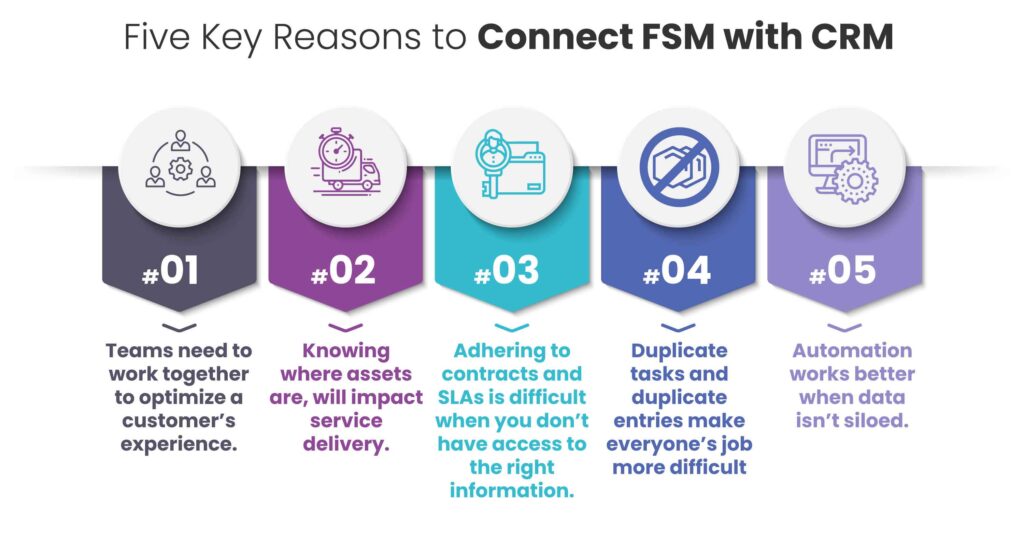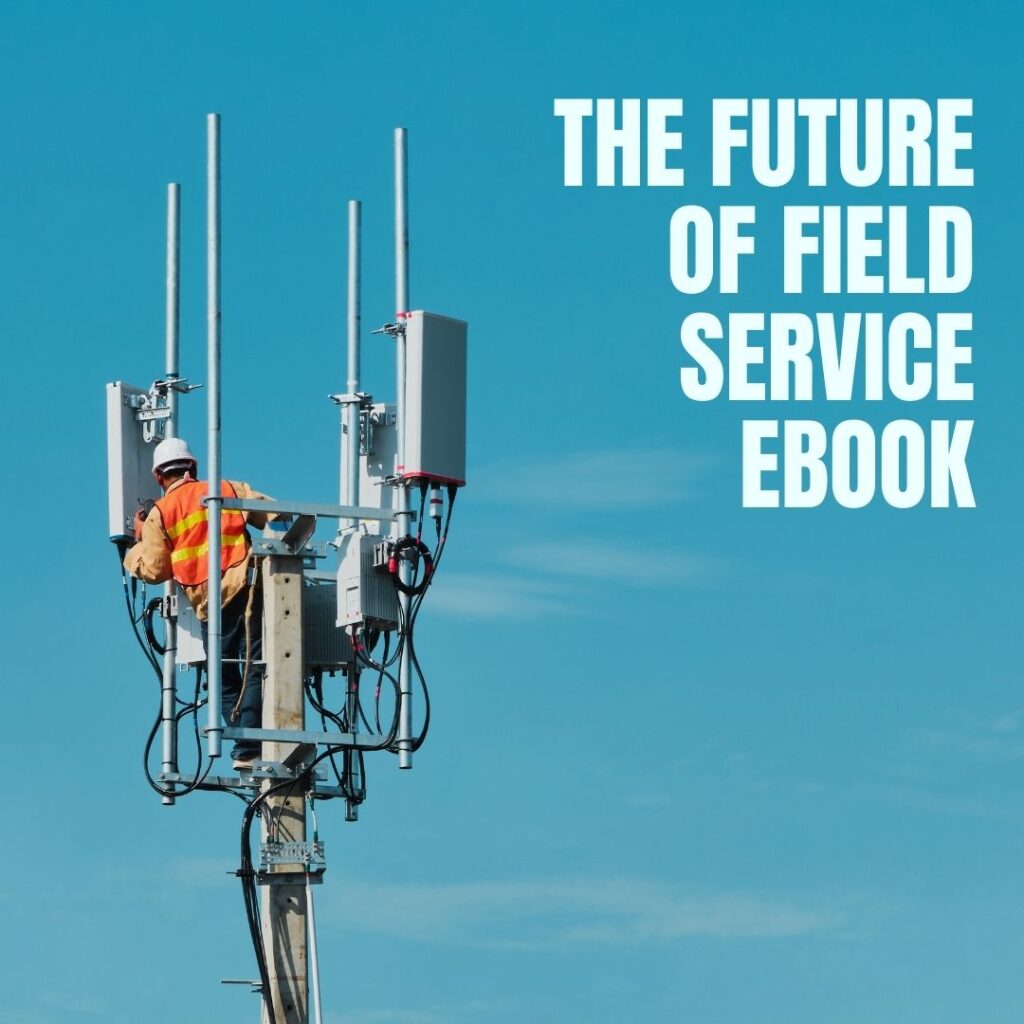- Teams need to work together to optimize a customer’s experience.
Working around a customer’s schedule, having case history on demand and knowing what to expect before they arrive at a location can all help a field service technician improve a customer’s experience.
- When FSM and CRM are integrated, most of the collaboration needed is done automatically; jobs become less about coordinating and communicating details, and all about the customer.
- With the ability to improve first-time fix rates, customer satisfaction rates also improve.
- Knowing where assets are, will impact service delivery.
What parts are in what vehicles, and where are those vehicles? Integration centralizes this information, allowing for schedule optimization and better asset management.
- Having more accurate data can improve how quickly field service teams can respond.
- If your goal is to delight customers, it also ensures field service teams will have the correct assets onsite to fully complete tasks the first time.
- Adhering to contracts and SLAs is difficult when you don’t have access to the right information.
When a technician arrives at a location they need to be focused on the customer and completing tasks safely and effectively. Not having access to correct or up-to-date information results in wasted time and money.
- Integration allows field service technicians to quickly and easily know what is under warranty, what services are coveredand what will cost extra; allowing them to inform the customer prior to service and billing.
- All of this makes technicians happier, customers happier and the entire experience more efficient.
- Duplicate tasks and duplicate entries make everyone’s job more difficult.
When systems aren’t integrated data must be entered multiple times, even though it belongs to a single account and this iswasted time by doing the same task more than once.
- This is frustrating for employees but can also negatively impact operations and the customer experience due to incorrect and incomplete information.
- Integrations help to maximize your technicians’ productivity and minimize wasted time.
- Automation works better when data isn’t siloed.
Changes, disruptions and emergencies are all in a day’s work in FSM. When systems are integrated both dispatch and field service teams will have up-to-date details to work from and the systems can work together to optimize automated tasks.
- This majorly improves scheduling and service.
- Reducing data siloes also adheres to best practices.
Connected Systems for a Better ROI
While system integration leads to better data, automation and ROI—getting an integration to work smoothly is where a lot of organizations run into problems.
This is where your choice of technology and solution partner really counts. IFS Field Service Management (IFS FSM) has built-in integration architecture, known as IFS Connect, which allows it to more easily be integrated with CRMs like Salesforce Sales Cloud or Microsoft Dynamics 365.
While each integration is as unique as each organization, Gogh Solutions has the depth of experience to help you bypass added costs and avoid overly complicated customizations, while achieving a smooth integration and connected systems.
Our own deeply experienced solution experts are always here to advise, discuss or answer questions about increasing your organization’s ROI—through integration or a tailor-made solution to fit your business’ needs—contact us today so we can help you succeed tomorrow.
To learn more about integrating your CRM system with IFS FSM, download the IFS guide here.








